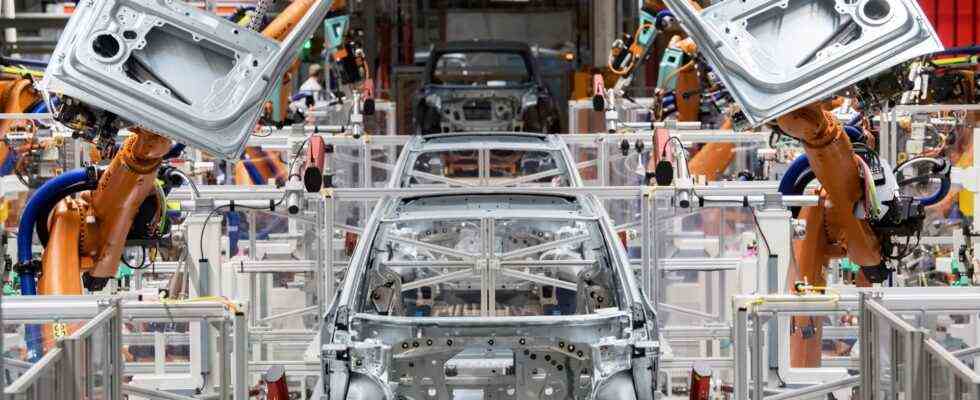As of: 09/29/2021 4:26 p.m.
The upheavals in the car market are getting bigger. The shortage of materials is increasing and short-time working is being expanded. In addition, prices for new and used cars are rising.
The auto industry keeps sending bad news. Volkswagen is extending short-time working in Wolfsburg, materials are becoming increasingly scarce and cars are becoming more expensive – regardless of whether they are new or used.
Actually, short-time work at VW was supposed to expire at the end of this week. But now short-time work will determine the majority of the first half of October, announced the Wolfsburg-based carmaker. A golf assembly line will only run on the morning shift on Friday. In the two weeks that follow, there will probably be “complete short-time work”.
Material shortages are holding back economic recovery
The reason is once again the shortage of chips. At the beginning of the pandemic, the industry had reduced its production worldwide – in some cases by force – and apparently prematurely terminated contracts with chip manufacturers. Now urgently needed parts are missing in many places, so that vehicles can either not be produced at all or only incompletely on stockpile.
The monthly economic survey by the Ifo Institute shows how much the material shortage is now slowing down industry and especially the automotive sector. Accordingly, the acute shortage of materials in German industry has worsened and is now greater than ever before.
Of the industrial companies surveyed, 77 percent reported bottlenecks and problems in the procurement of primary products and raw materials. The previous record of August of 69 percent was exceeded. “The bottleneck on the procurement side is getting tighter,” stated Ifo expert Klaus Wohlrabe. “There are a lot of orders, but companies cannot produce them at the moment.”
Almost all car companies affected
The auto industry is hardest hit. At 97 percent, almost all companies reported problems. As a result, more and more companies want to raise their prices.
Price increases are already a reality on the new and used car market. Because fewer cars are produced and hit the market, there are also fewer discounts. This is what industry expert Ferdinand Dudenhöffer determined. A typical new car became more expensive for the consumer by a total of 360 euros in August and September.
To calculate the current price increase, Dudenhöffer assumes a new car with an average price of 36,500 euros. State subsidies, self-registration of the car trade as well as the prices and offer density for car subscriptions are also included in the calculation.
No turnaround in sight
The expert expects the current development to continue. “In the next few months, too, new car buyers will have to reckon with falling discounts,” commented Dudenhöffer. The background to this is the ongoing semiconductor shortage, which will limit the number of cars coming onto the market until the middle of next year.
The prices of used cars are rising even more. In July and August, typical three-year-old used cars were around two and a half percent more expensive, according to figures from the market watcher Deutsche Automobil Treuhand (DAT). More recent data are not yet available, but a further increase is expected. “The used car market is currently experiencing soaring prices,” reported a DAT spokesman.
Due to the delivery bottlenecks, many people interested in new cars switch to a young used one – and sometimes find a market that has been sold empty. “Young used cars are often in short supply, as fewer new cars have been built and registered because of the pandemic,” says DAT. Above all, there is currently a lack of former company cars and rental cars and short-term registrations from dealers and manufacturers.

